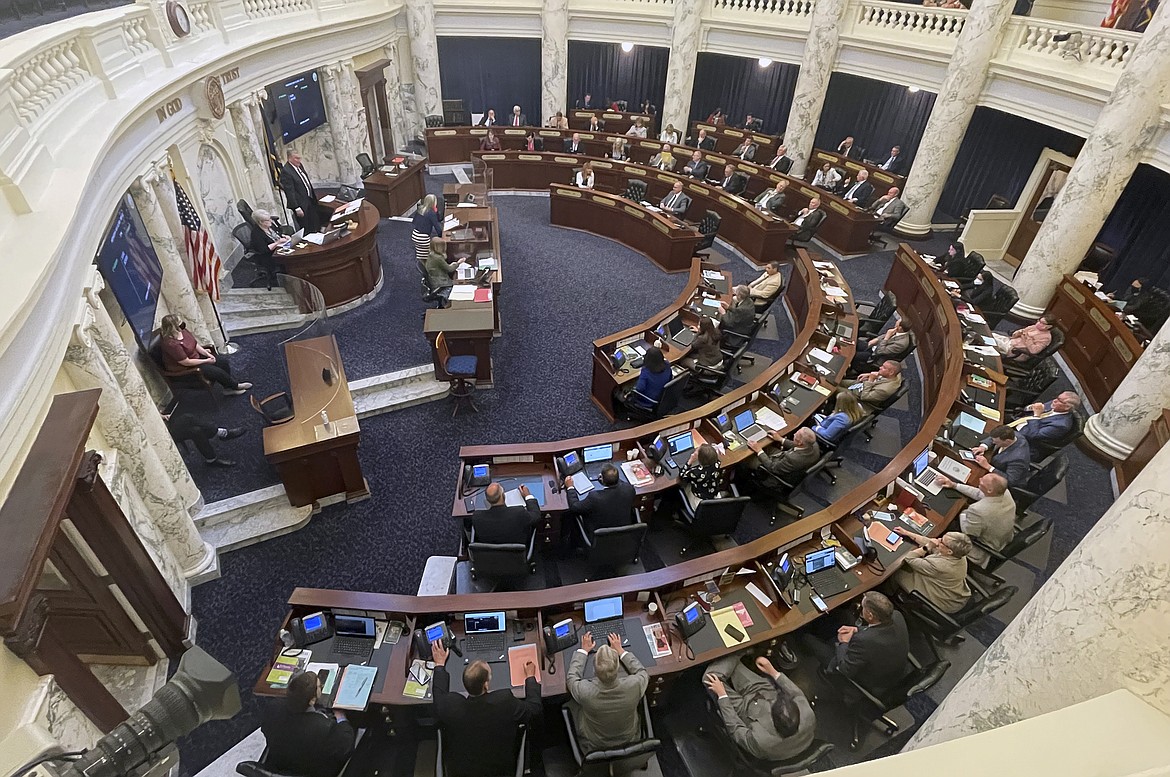A few of the 360 laws that flew under the radar
The 66th session of the Idaho Legislature is now officially in the rearview mirror. The more-than-four-month-long session has been described by reporters and lawmakers alike as anywhere between tumultuous, productive, raucous, constructive, divisive and — at a historic 122 days — long.
One could argue the session isn’t even complete, as the Senate voted to adjourn in traditional style, while the House voted only to recess, which could leave open the possibility to return for a second act. It’s a move Gov. Brad Little called rife with potential pitfalls.
“An unknown end-of-session date and important work left undone create major dysfunction in state government,” Little said Thursday.
The longest session on record was extended for two weeks in March, this after maskless lawmakers debating the merits of pandemic protocols were forced into a two-week shutdown amid a COVID-19 outbreak. They returned to haggle over election laws, argue against critical race theory and social justice, boot a disgraced lawmaker facing rape allegations from its ranks, and vie to pull power from the executive branch in the event of future pandemics.
But somewhere in those long four months, the body of 105 representatives and senators in Boise passed actual laws, too. In the midst of failed pandemic bills, appropriation fights, wolf legislation, higher-profile social debates and rumors of recess, a total of 360 bills became law. Here are a few that received little-to-no attention but could impact everyday Idahoans.
In 2020, Idaho passed the sweeping Distracted Driving law that makes the use of electronic mobile devices while driving a crime, even while waiting for a light in the intersection. That law gave certain exceptions, including hands-free for phone calls. Law enforcement held a six-month education campaign before converting over to enforcement.
House Bill 5 put the pedal down a little harder on one of that law’s provisions. Before, drivers could use their GPS or navigation apps within their mobile devices as an exception to the law. Now, drivers’ GPS and navigation on phones and tablets are only allowed if those devices are in hands-free mode.
Lawmakers tossed Idaho trappers a legislative morsel in March. Trappers can now use non-edible portions of animals as bait. Before, Idaho Code prevented trappers from using any part of a game bird, game fish or game animal.
“From my perspective, if it’s now legal to use something that’s in an animal’s natural diet, the advantage for trappers could be that it could significantly improve your chances of success,” said Jeremy Kimberling at North 40 in Coeur d’Alene. “If a bear, for example, has a fish as part of its natural diet, and you retain the head or the guts of a fish, you can use those parts to help attract bear. It could really help your chances.”
Public shooting ranges will get a boost from those in violation of Idaho’s fish and game laws. Before, 65 percent of fines and forfeitures were apportioned to Idaho’s Fish and Game Fund, with the remainder divvied up between the state’s general fund, the state’s search and rescue account and the state’s district court fund. Now, that 65 percent, will go to the state’s public shooting range fund.
“That sounds good,” said Conrad Lahr, who volunteers at the Coeur d’Alene Gun Club.
The state’s public shooting range fund was established by the Legislature last year in an effort to establish public ranges for training, education and competition. Lahr said additional assistance to help introduce new shooters into the sport.
“Safety is number one,” Lahr said. “We do everything we can here at the club, too, to keep it safe. The other thing we do is have a junior shooting program to help teach kids how to respect the sport.”
The 360 laws passed by the Legislature this year also include a prohibition against the state to enter into contracts with any business that boycotts Israel. Manufacturing home retailers will no longer have to pay sales tax on the homes and materials they purchase for resale to potential homebuyers. An opioid settlement fund was established to help distribute awarded funds from opioid manufacturers to help treatment and prevention efforts.
Most new laws in Idaho go into effect July 1.

